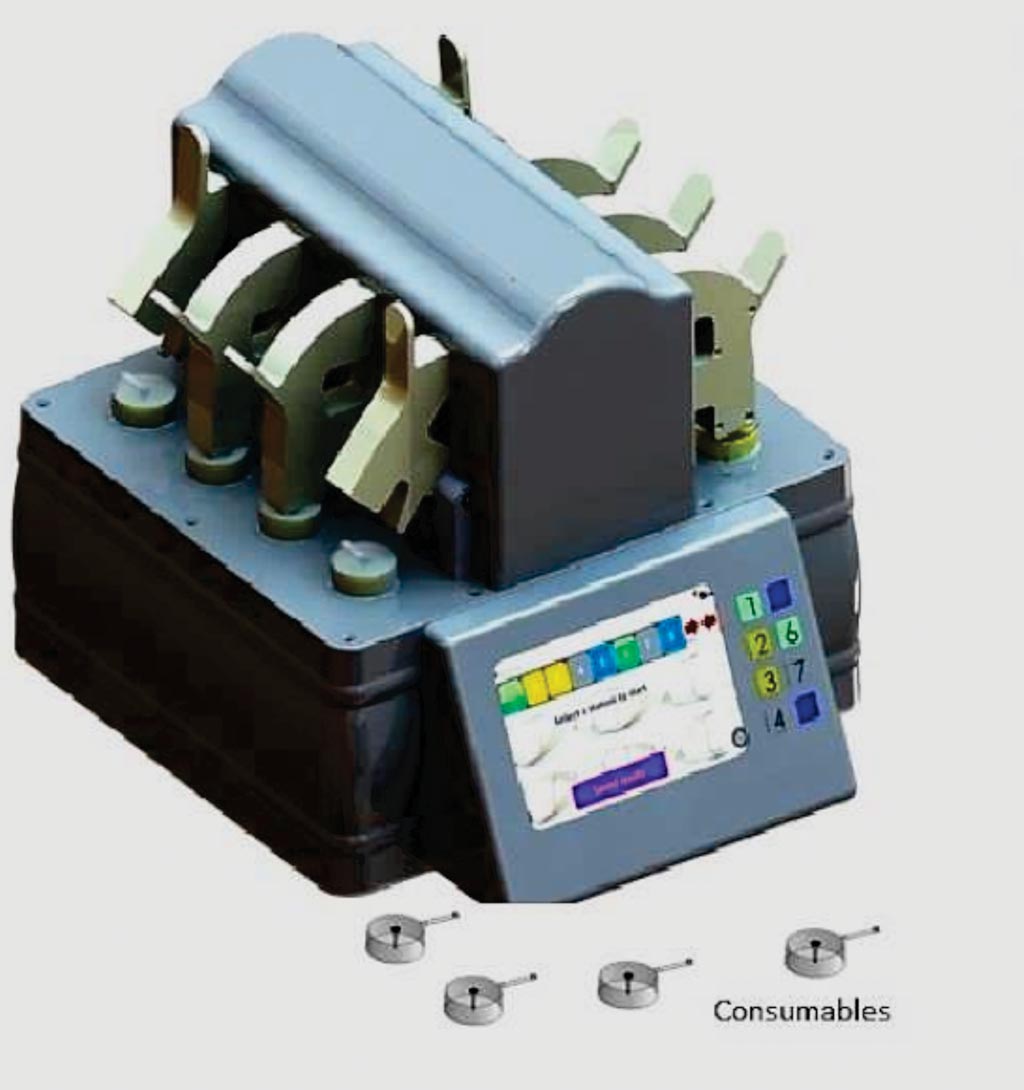Rapid Screening Test Developed for Ebola Virus
By LabMedica International staff writers
Posted on 12 Oct 2017
During the Ebola outbreak in Africa in 2014, patients tested for the disease had to provide a blood sample for testing in a specialist laboratories by highly trained staff. There are only a few of these facilities in the world.Posted on 12 Oct 2017
Each diagnosis of the Ebola virus (EBOV) genome taking between 5-8 hours to confirm, and as yet there is no solution for reliably deploying at the point of need the gold standard diagnostic method, real time quantitative reverse transcription polymerase chain reaction (RT-qPCR), in a laboratory infrastructure-free manner.

Image: The EbolaCheck device for the diagnosis of Ebola virus (Photo courtesy of Westminster University).
An international team of scientists collaborating with those at Northumbria University (Newcastle Upon Tyne, UK) have demonstrated the direct performance of RT-qPCR on fresh blood using far-red fluorophores to resolve fluorogenic signal inhibition and controlled, rapid freeze/thawing to achieve viral genome extraction in a single reaction chamber assay. The team focused on the Trombley primer and probe sets for the EBOV GP and NP genes, considering the human RP assay as a control, and an MS2 Escherichia coli phage-specific assay set for fluorescent probe- or intercalator-based blood tolerance studies. Plate-based RT-qPCR assays were carried out on an ABI 7500.
The new point of care diagnostic platform is called EbolaCheck, which can be deployed to the scene of an outbreak. The test can now be carried out on an amount of blood that is 700 times smaller than previously needed, literally a drop obtained by 'pin pricking' a finger, and it now takes less than 70 minutes to complete. As a result, the test is much safer to administer, requires minimal training and reduces the cost of diagnosis significantly. Crucially, its performance is comparable to laboratory testing, meaning any patient with symptoms of Ebola can be safely and reliably diagnosed. The test uses proprietary technology developed by BioGene Ltd.
Sterghios A. Moschos, FRCS, FIBMS, an associate professor and lead investigator said, “The development of this pioneering technology could essentially save lives and reduce the spread of the disease, which is crucial in a humanitarian crisis. Due to there being no further cases since it was developed, to date, it has not been possible to take the test out of the lab, into the field, where the patient needs it. However, it can be deployed anywhere, the frontline in Africa where this disease is found, as well as international airports and ports, to help stop the disease from spreading and to prevent disruption of international trade and travel. It could also be used in the diagnosis of other infectious diseases.” The study was published on September 25, 2017, in the journal Chemical Science.
Related Links:
Northumbria University














